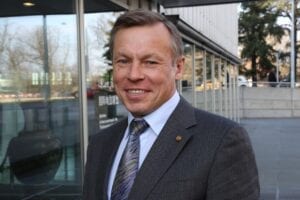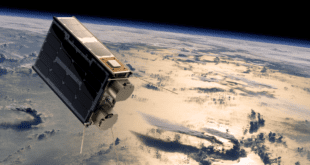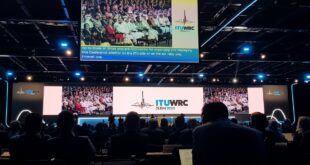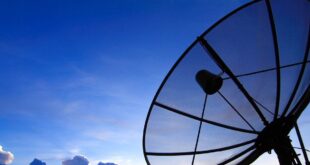
Elina Morozova in conversation with Dr Viсtor Strelets, a high-caliber expert in the field of radio frequencies and satellite orbits with 40-years’ practical experience, including within the International Telecommunication Union (ITU), regional telecommunications organizations, and the telecommunications administration of the Russian Federation.
Viсtor Strelets has dealt for the last 40 years with various aspects of managing the orbit and frequency resource. Having defended a dissertation on the international legal protection of frequency assignments to space services and systems, Dr Strelets gained hands-on experience and industry knowledge in Russian civil service and at specialized international fora. This includes ITU Plenipotentiary Conferences, World Radiocommunication Conferences, and the Radio Regulations Board which was earlier chaired by Dr Strelets.
When talking about space resources, some immediately think of natural resources of celestial bodies, especially the Moon. However, as of today the most valuable, highly demanded, and intensively used resources of outer space are radio frequencies and satellite orbits. What are these resources and why are they sought after?
To ensure regular operations of any satellite, the spacecraft must first be deployed in a specific orbit. Secondly, a reliable connection with the satellite from the Earth must be established, which is required for telemetry, tracking and command (TT&C) and for the satellite’s performance of its general functions, be it communications, navigation, remote sensing, or others. This is only possible by utilizing radio frequencies. With no spectrum-use capabilities onboard, the satellite is just a useless space object orbiting in space that will, sooner or later, join the space-debris fleet. Hence, radio frequencies and associated orbits are vital for satellites in space, just as air is essential for humans on the Earth. The geostationary satellite orbit (GSO) is currently the most heavily occupied since it is absolutely unique. A satellite on the GSO remains stationary with respect to a specific location on the Earth’s surface. Yet, other orbital shells, such as in low and medium Earth orbits, are also actively used by different types of space applications.
Why does the utilization of radio frequencies and satellite orbits require regulation? What is the ITU and how does it manage the use of the orbit and frequency resource?
The qualitative advantage of radio frequencies and satellite orbits is that they are not exhaustible resources, such as, for example, minerals. Still, they are limited. Despite the vastness of outer space, there is a finite number of ‘seats’ on every orbit and the number of frequencies associated with them is also finite. Management of these limited natural resources is entrusted to the ITU – a specialized agency of the United Nations for information and communication technologies, which ensures their rational, efficient, and economical use in an interference-free environment. ITU documents, including above all the Radio Regulations, which is the desktop book of each operator, provide for spectrum management mechanisms, such as allotment, allocation, and assignment, as well as international frequency coordination and, finally, recording of frequency assignments in the Master International Frequency Register. Some mechanisms that were initially dedicated to ensuring equitable access to the GSO, such as frequency allotment plans, are so outdated that they should no longer even exist and should be cancelled. Such and similar important decisions can be made by World Radiocommunication Conferences convened every four years, which also revise the Radio Regulations and ensure their relevance to the time and technology concerned. In the meantime, the Radiocommunication Bureau applies, on a daily basis, the provisions of the Radio Regulations to specific cases related to the utilization of radio frequencies and satellite orbits. If a dispute arises between the Radiocommunication Bureau and an ITU member state, or between member states, the Radio Regulations Board steps in to serve as a quasi-judicial body of the ITU.
In the course of a further discussion, management of the radio frequency spectrum was reviewed in greater detail, including the upcoming active exploitation of the Moon and the utilization of ‘lunar’ frequencies, recent comments by some delegations on the imperfection of the ‘first come, first served’ principle at the Scientific and Technical and the Legal Subcommittees of the UN Committee on the Peaceful Uses of Outer Space (COPUOS), and which international forum is still more appropriate for settling the issues related to the orbit and frequency resource. Finally, trending topics of large satellite constellations and small satellites were touched upon.
What is your opinion on large satellite constellations and what are possible consequences of their deployment?
It is already the second wave of the non-GSO constellations boom. The first wave projects, such as Teledesik and SkyBridge, were indeed unique and well ahead of their time. They offered global coverage and less latency compared to the GSO systems, still their economic model was not successful and failed to become financially attractive. Similarly, it is doubtful that the currently discussed second wave projects will find enough customers to be commercially beneficial. As for possible consequences of their deployment, the ITU will definitely face more cases of harmful interference, while within the competence of the UN COPUOS the issues of space traffic management, space debris, and safety and sustainability of space activities will become even more pressing. As for the constantly increasing popularity of smallsats, the ITU keeps an eye on this issue. Within Study Group 4, which is currently chaired by Dr Strelets, a relevant set of recommendations is being drafted. The ITU member states have been invited to submit comments which will be duly taken care of in the final document titled ‘Small Satellite Handbook’.
This Space Cafè Russia, held on 4 June 2021, was hosted by Elina Morozova, Executive Director of the Intersputnik International Organization of Space Communications and friend of SpaceWatch.Global.
SpaceWatch.Global is a Switzerland-based digital magazine and portal for those interested in space and the far-reaching impact of the space sector.
Space Cafe Russia is broadcast live on the first Friday of the first month of each season. Join us at 5 pm MSK.
To listen to Dr Viсtor Strelets’s insights on the uniqueness of radio frequencies and satellite orbits and the future of their utilization, you can watch the full programme in the Russian language here:
 SpaceWatch.Global An independent perspective on space
SpaceWatch.Global An independent perspective on space




